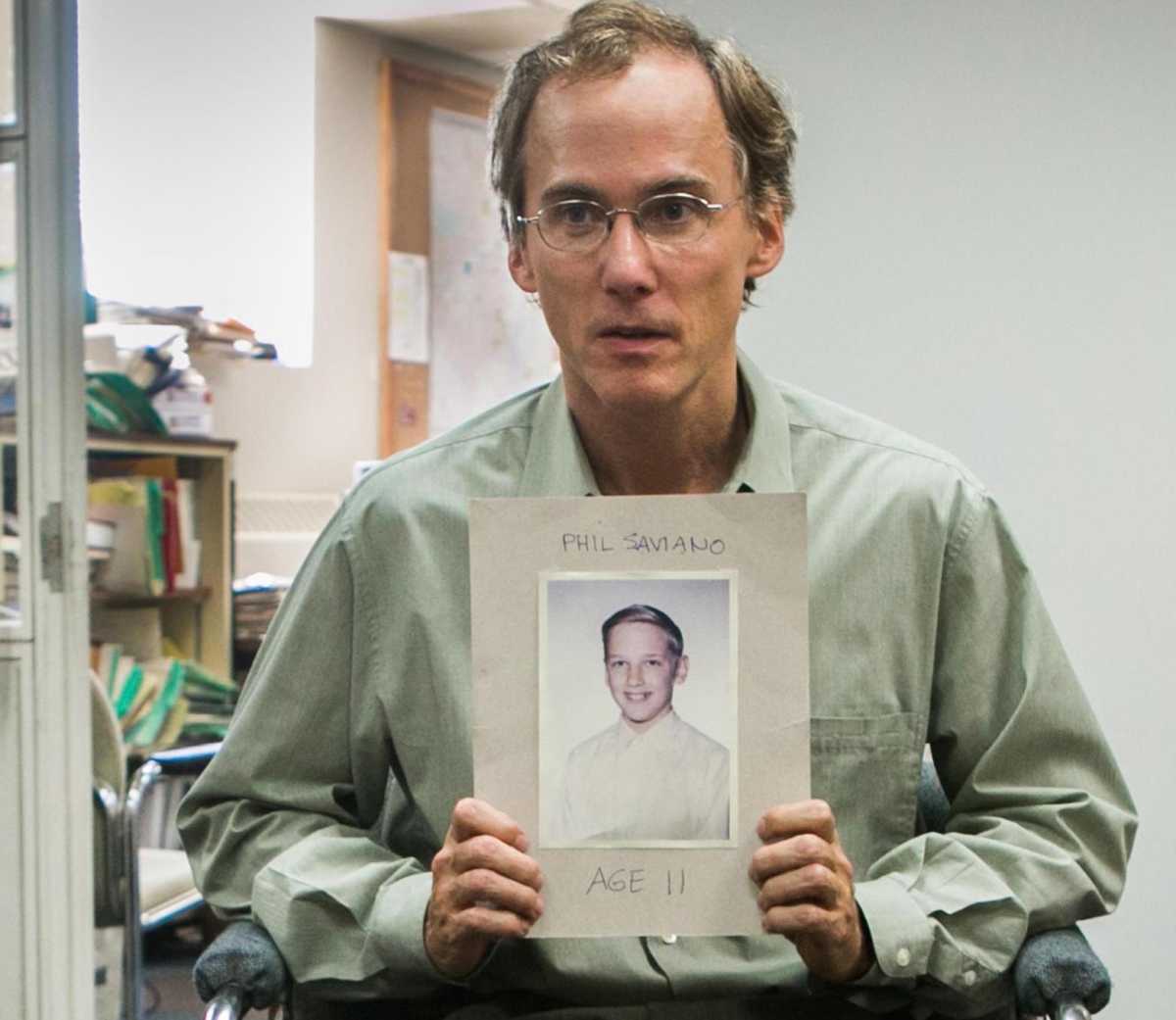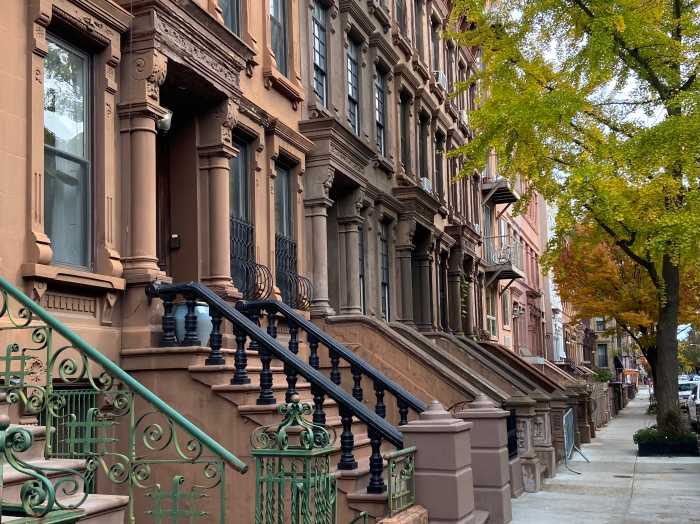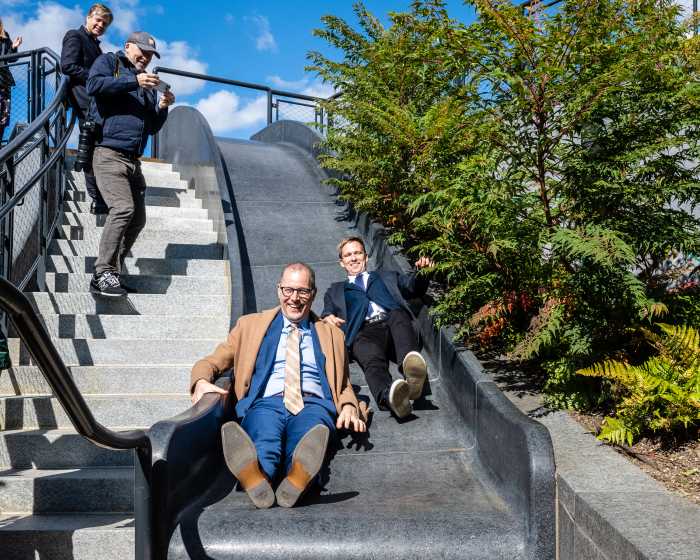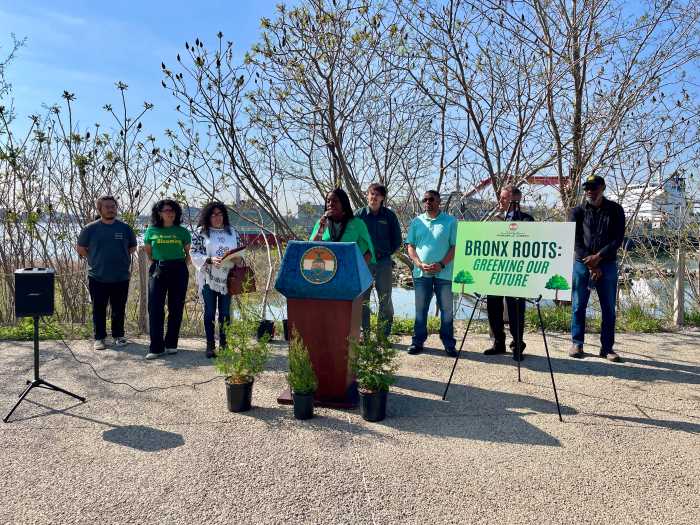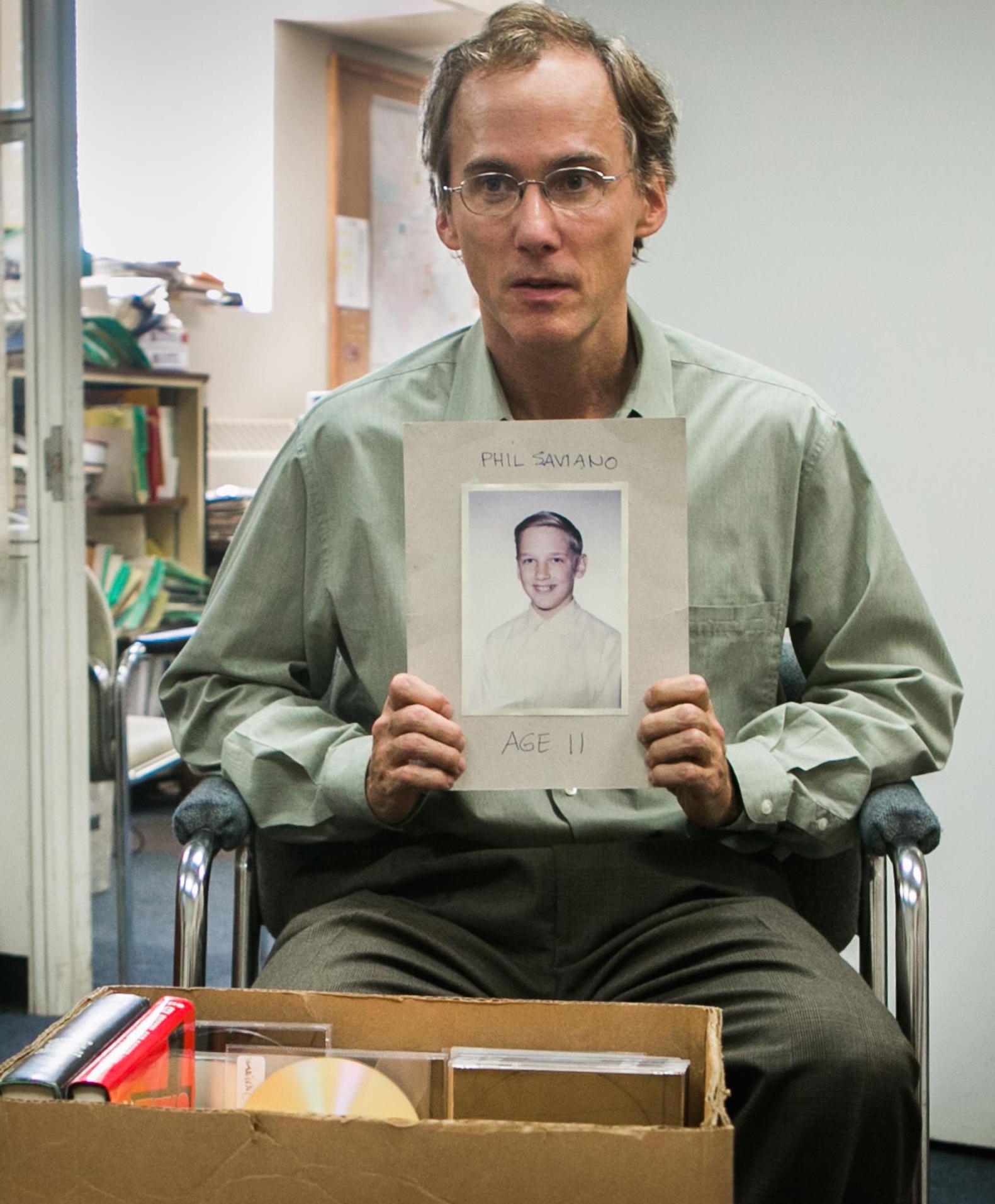
BY LINCOLN ANDERSON | Soho actor Neal Huff is known to fans of “The Wire” as Michael Steintorf, chief of staff to Mayor Tommy Carcetti.
Now, in the Academy Award-nominated film “Spotlight,” Huff plays a pivotal supporting role as Phil Saviano, a child sex abuse survivor who helps the Boston Globe’s Spotlight investigative team blow open the hidden plague of pedophile priests in the Boston Archdiocese. The Globe won the 2003 Pulitzer Prize for Public Service based on the Spotlight team’s reporting.
The film also stars Michael Keaton as Spotlight Editor Walter “Robby” Robinson, Mark Ruffalo and Rachel McAdams as reporters Michael Rezendes and Sacha Pfeiffer and Liev Schreiber as Marty Baron, the tough-minded new editor who pushes the team to tackle the story.
Huff plays Saviano as frazzled and frustrated: He had pitched a story to the Globe years earlier about priest abuse in Worcester, but it only resulted in one article that was hardly far-reaching enough, and there was no follow-up.
“Spotlight” is like a “Watergate” for our age, a fascinating look inside a journalistic investigation into a huge story. But the magnitude of the issue “Spotlight” focuses on — sexual abuse within the Catholic Church, which is a worldwide problem — makes the Watergate scandal pale by comparison. It’s a front-runner for Best Picture at this Sunday evening’s Oscars.
Huff grew up just outside the Bronx, in Pelham, and attended New York University’s Tisch School of the Arts, where he honed his thespian skills.
“I loved it because I was finally getting to do what I wanted to do,” he said of N.Y.U. “We were, like, hermetically sealed. We were 17 students together for three years. I definitely wouldn’t have wanted to go anywhere else.”
Huff was in the cast of “Take Me Out,” which won the Tony Award for Best Play in 2003.
He was on seasons four and five of “The Wire” in 2007 and 2008. His character’s main role was to try to keep Mayor Carcetti’s hands clean, so that he could run for governor. Carcetti was said to be based on Martin O’Malley.
“If you know anything about Baltimore, you know ‘The Wire’ was completely accurate,” Huff said. “President Obama has said in the past his favorite show is ‘The Wire,’ and Martin O’Malley said it’s his least favorite show.”
Huff noted that DeRay Mckesson, an activist in the Black Lives Matter movement, now looks like he is going run for mayor of Baltimore, “which I think is going to be wonderful,” he said.
In researching his role for “Spotlight,” Huff viewed letters that concerned Massachusetts priests had written about sexual abuse that was occurring in the Church. Yet, the language was always very veiled and vague.
“It’s amazing,” he said, “how archbishops talk around what was going on — even in letters among higher-ups to other higher-ups — about moving priests around.”
During the making of the movie, Huff was in close contact with Saviano, who had started the New England chapter of SNAP (Survivors Network of those Abused by Priests).
Robinson and Rezendes watched some of the filming, and walked up and complimented Huff after the scene where he plays Saviano in his first encounter with the Spotlight team. They told him he nailed it.
“Robinson said he thinks this is the final taboo,” Huff said. “There are so many taboos about speaking out against your family. He feels this is the next frontier, as an investigative journalist.”
(In a similar vein, The Villager recently broke the story of legendary Lower East Side gardener Adam Purple’s previously untold history of sexually abusing his own daughters and former stepdaughters. As first reported by The Villager, Purple, real name David Lloyd Wilkie, served up to two years in prison in Australia for molesting his oldest former stepdaughter.)
Huff admitted that “Spotlight” did have “a lot of special resonance” for him on a personal level.
“I went to a Jesuit high school, Fordham Prep, in the Bronx,” he noted. “I was married by a Catholic priest. I also know of stuff that happened in our school. … And then when I knew I was going to be representing Phil [Saviano], I just felt a massive, massive responsibility — like a sacred duty.”
On a more local level, while it’s certainly not a crime, gentrification virtually amounts to a sin, in Huff’s view, in the way it is so radically altering New York City’s landscape. He has lived on Thompson St. since his N.Y.U. days, and in the couple of decades since then, the neighborhood’s transformation has simply been overwhelming.
“I am just so saddened by the gentrification of New York,” he said. “When do you say, ‘Enough?’… In this economy, there is never enough.”
He closely follows the issues that the Soho Alliance community activist group is working on, and supports their fights — and also participates in some of them.
“I’ve been to Community Board 2 a bunch. Sean has been really helpful,” he said. “He tried to fight Trump Soho.”
He was referring to Sean Sweeney, the Soho Alliance’s director, and the community’s fight against the developer-now-turned-presidential candidate’s massively oversized condo-hotel tower at Spring and Varick Sts.
One of the first things Huff remembers from when he moved onto Thompson St. in college was an Italian-American social club fighting to keep from being evicted.
“There were all these sheets on the fire escape: ‘Keep the Club — Keep Soho Safe,’ ” he recalled of the makeshift banners’ messages. “There was a picture of Pia Zadora and Frank Sinatra. There was a strange level of quiet and protection in the neighborhood that went away,” after the club was forced out.
“Being a kid in school 20 years ago, it was a very different place,” he recalled. “You were able to have your own place. It’s very different now. So many storefronts are empty now — landlords are waiting for higher-rent tenants.”
New high-rises keep on springing up.
“It’s like the neighborhood has been on steroids for a long time,” he said.
And yet, Huff admits he kind of likes the so-called “Little Flatiron Building” on the former gas station and car wash site at Sixth Ave. and Sullivan and Broome Sts.
“I’ve got to say, it’s very attractive. It’s got that industrial feeling,” he said, though adding, “But it’s taking up so much sky for [its neighbors].”
He is not a critic of God’s Love We Deliver’s new, enlarged building, either, mainly because he respects their mission of feeding the sick.
“The fact that they’re still there, doing what they do, is amazing,” he said. “I thought it was going to be a monstrous tower. I’m glad it’s still there, the organization.”
Huff loves the area’s many Italian restaurants — he readily rattles off their names and his favorite dishes at each one — while his favorite cafe is Local on Sullivan St.
“Craig is amazing. I’ve been going there since they opened,” he said of Local’s co-owner, Craig Walker.
The actor even has a grudging respect for cronuts, and total respect for their creator, Dominique Ansel.
“It’s a crazy, annoying thing — the line,” he said. “But that place turns out amazing stuff. It’s not his fault he has the pastry equivalent of the Beatles.”
One issue Huff has been following closely is Ladurée, ostensibly a macaroon place at the former Barolo restaurant spot, which has been throwing loud outdoor parties and which also put a massive A/C unit on the second floor.
“Big money comes in with very little perspective. They don’t care,” he reflected. “They have a DJ twice a week and they rent it out. They’ve got a huge amount of corporate money behind them. When that thing is really slamming, nightclub style, you hear it. The issue is they continue to really crank out nightclub music several times a week.”
Huff planned to attend a C.B. 2 State Liquor Authority Committee meeting about Ladurée earlier this month. Meanwhile, he and his neighbors have been organizing about it on their own end, too — at Local, of course.



